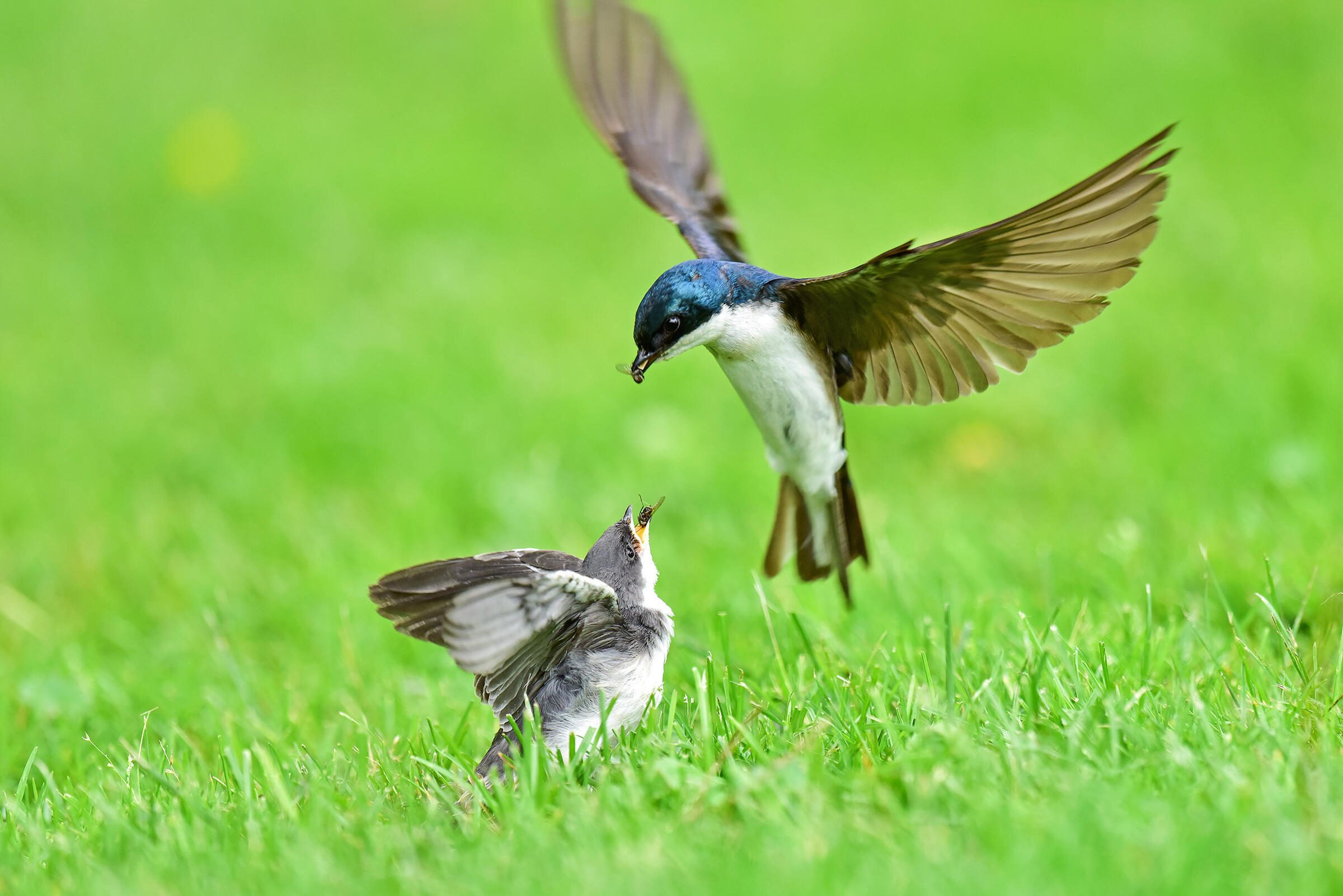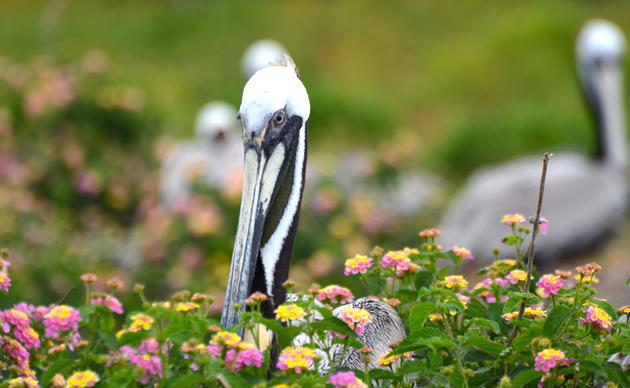September 1, 2022
By Sara Beesley, Center Director, Mitchell Lake Audubon Center
Spending time outdoors was normal for me growing up. Whether it was a walk down to the creek by my house with my grandmother, a visit to the local park on the weekend, or a family gathering outside. I grew up chasing lizards with my cousins while my father and uncles cooked fajitas on the grill.
With Hispanic/Latinx Heritage Month around the corner, I started thinking about my roots and how it led me to a career in conservation. I am a first generation American and grew up spending summers with my abuelita. She was the “OG” when it came to sustainable living. Reduce and reuse were second nature out of necessity, not choice. I’ve been reflecting on the ways I was taught to be kind to the planet.
She would reuse and recycle - everything. Margarine containers, cooking oil, and plastic bags. Everything had a second life. Plastic containers became freezer storage for leftovers. Cooking oil was used more than once and rendered animal fat saved for a second and third use for flavor. Plastic grocery bags would line the trash cans, and she would take them back to the store to reuse them as many times as she could. If my abuelita did splurge on purchasing something, it was usually second hand. Finding well-seasoned cookware from thrift stores or making sure we had a bag of hand-me-down clothes from of my cousins to wear.
According to the EPA, the average person in the U.S. throws away 4.4 pounds of trash every single day. This landfill accumulation produces an enormous amount of gases that contribute to global temperature rise. Texas alone produces 331.8 cubic feet of methane gas annually.
Food was locally sourced. My Tia Marina would bring a cabrito from their farm in Mexico and my abuelita brought the vegetables and peppers from her garden to share. Other relatives would bring fresh eggs or venison from a recent hunt. Everyone would gather for large meals and always make extra to store or take home – also reducing energy use (and expense) by cooking outside and making extra for use later.
Today, eating locally sourced produce helps reduce the amount of greenhouse gases released into the atmosphere by shoppers traveling thousands of miles back and forth to grocery stores. Grass-fed, grass-finished beef (like those from Audubon Certified Bird-friendly Ranches) is a more sustainable choice due to the offset of increased habitat and native grasses, better for absorbing and holding carbon from the atmosphere.
Every creature matters. Insects, lizards, and snakes would all be escorted out of our house in a timely manner, but rarely killed. I remember the time a bird flew in through the window. My dad and abuelita ran around, catching it in a towel to set it free outside. It was instilled in me with great clarity that all creatures have a purpose and are part of the bigger fabric of life. In order to protect all creatures great and small, but especially birds, it’s important to consider the choices I make every day – whether it’s to bring my own grocery bags to the store, reuse the plastic container, or choose local food from the farmer’s market. We can’t do it all, but every little bit helps.
I feel connected to my past by preserving what we have for future generations. I want my daughter to have the same positive outdoors experiences I had growing up, and for her to be kind to the planet we all live on. I am thankful to have the opportunity to work in conservation, helping birds and the places we live. Birds face many challenges, with climate impact topping the list (389 species are threatened by the shift in habitat availability it creates). We all make choices every day. I try to make my abuelita proud with mine.
How you can help, right now
Join Audubon Texas Today
Becoming a member supports our local work protecting birds and the places they need.
Consider a Legacy Gift for Texas
Planned gifts and bequests allow you to provide a lasting form of support to Audubon Texas.
Subscribe to Our Newsletter
Subscribe to our newsletter for updates about Audubon Texas's conservation work, and news about our activities and local events.





